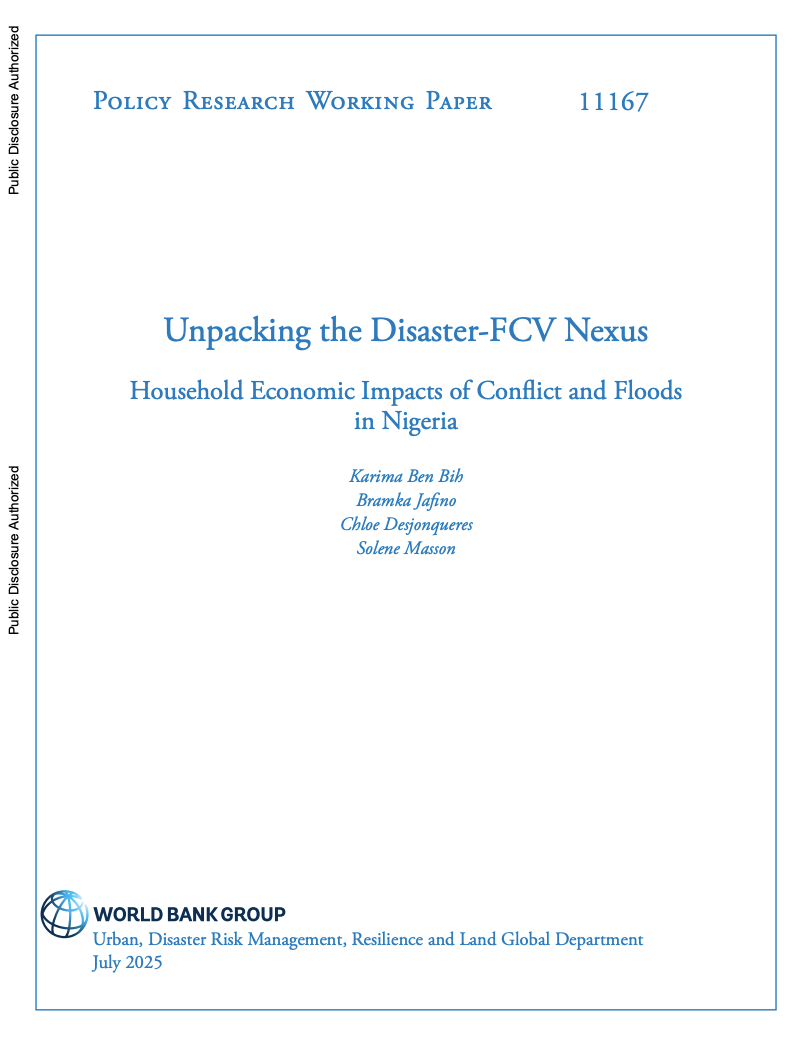This paper investigates the impact of conflicts on flood-affected households in Nigeria, utilizing a balanced panel dataset derived from the Living Standards Measurement Survey data collected in 2012, 2015, and 2018, and geo-spatial conflict data from the Armed Conflict Location and Event Data Project. The analysis employs difference-in-difference regressions to examine whether conflicts have a measurable effect on households and whether this effect is intensified when considering flood exposure. The study focuses on households' consumption expenditure outcomes, comparing conflict-affected and non-conflict-affected households, and further narrows down to flood-affected households. The results indicate that conflict-affected households experience lower consumption expenditure compared to non-conflict-affected households, with the adverse effects being significantly more pronounced for those also affected by floods. The study also investigates these effects on households’ income, albeit with a smaller sample. Similar findings, although less robust, were noted when analyzing income trends. The findings underscore the compounded vulnerabilities faced by households in conflict and flood-prone areas, highlighting the need for integrated policy interventions to address the compounded impacts of these shocks.
Unpacking the Disaster-FCV Nexus: Household Economic Impacts of Conflict and Floods in Nigeria
July 8, 2025

